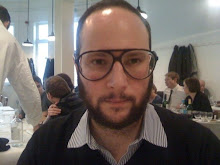Natalia Sorzano, Santiago Monge and Juan Haag with Andrea Barragán, Alias Angelita, Juan Pablo Echeverri, Bastardo, Manuel Londoño, Lilith Natasha Border Line, Guillermo Riveros, Pablo Adarme, Catalina Rodríguez, Andrés Felipe Uribe, William Contreras, El Ciudadano Gay, La Corporación El Otro, Amigos en Común, Hernando Muñoz, Corporación Creemos, entre otros amigos.
views of the beautiful patio of the Taller Sitio/Plazarte house, where el Encuentro Cheverista took place
The first Encuentro Internacional (Cheverista) de Medellín 2011 -MDE(CH)11- recently took place as part of the Encuentro Internacional de Medellín -MDE11-. The MDE(CH)11 was held during the first three weeks of October in Medellín (Colombia), and served as a platform for the development of a series of exhibitions, discussions, happenings, banquets, and work meetings between a group of cheverista artists, curators, thinkers, and cultural producers. It took place in Plazarte and was organized by Proyectos Ultravioleta, with the ongoing support of Beatriz López, Pablo León de la Barra and the curatorial committee of MDE11 (Jose Roca, Eva Grinstien, et. al.). The exhibition programme included exhibitions by La Loseta, Preteen Gallery, Nuevo La Ene, Proyectos Monclova, Diablo Rosso, Proyectos Sauna, La Central, Proyectos Ultravioleta, and a two-person show by José Aramburo and Mateo Rivano.
Cheverismo is an international art movement started by Beatriz Lopez and Pablo Leon de la Barra the last days of 2008, as an attempt to generate a new art movement for the next decade. Cheverismo art is critical, socially and politically engaged, but also full of humour. Cheverismo art is chevere. Cheverismo develops from the American continent, but has no nationality. Cheverismo produces aesthetic manifestations which exist beyond the circuits of galleries, museums, art fairs and biennales, creating new networks for exchanges. Cheverismo Internacional developed after a meeting of some of the participants in
Puerto Rico in 2009. Since then a series of exchanges between the participating members, and new incorporated ones has occurred. Cheverismo is financed by the economy of friendship.
The original Cheverismo Manifesto consisted of the following commandments:
1. Cheverismo doesn't belong to anyone, it belongs to all.
2. Cheverismo doesn't need art, art needs Cheverismo.
3. Cheverismo exists beyond the art market, and beyond the circuit of galleries, museums, festivals and art fairs.
4. Not only does Cheverismo allow internal and external contradictions, it celebrates them.
5. Cheverismo has no form and sets out no formulas.
6. Cheverismo proposes a new language and a subsequent new form of action.
7. Cheverismo is transmited orally and telepathically.
8. Cheverismo never dies… it transforms it self
8. Cheverismo is bipolar
9. Cheverismo auto curates itself.
10. Cheverismo is for everyone. Cheverismo is only for chevere people!
A new Cheverismo manifesto, from the experience of the Encuentro Cheverista, will come out soon!
What is Chévere?
First we need to discuss the exhaustion of art forms and models. In the last year of its first decade, we will revise the model, the quote, the market. A decade in which the commonplaces of 20th century art were constantly revisited and cited, as if art refused to take over its time and embrace the new millennium.
Nevertheless, some artists took the risk of experimenting in their own stance, and consolidated works from this, our time and beyond. Hence, Cheverismo is a celebration of the works that by their chévere, unprecedented characteristics have marked the beginning of the history of a new art, anticipating, creating new windows, possibilities and fields of action. Cheverismo proposes to eliminate the boundaries of conventions and to point out those manifestations that happen beyond the conventional spatial limits of art, set by the museum, the studio, the gallery, etc. It concentrates on the creation of direct realities that stem from the way we relate to each other, inside or outside of the art world.
Chévere, is a Caribbean word that describes that which is unpretentious and good. It could also allude to a milestone in the Latin American revolutionary imagery: Che Guevara. Thus, Cheverismo gathers that which is chevere and simultaneously political and revolutionary.
Participating Artist Spaces, Galleries and Artists at the Encuentro Cheverista:
Nuevo La Ene, Buenos Aires- Un Museo Chévere
Gala Berger, Agustín Díez Fischer, Sofía Dourron, Leopoldo Estol, Franco Ferrari, Lala Ladcani + Martín Lowenstein, Adriana Minoliti, Andrés Pereira Paz, Marina Reyes Franco, Felipe Salem, Marcela Sinclair, Nicolás Sarmiento, Santiago Villanueva.
Proyectos Ultravioleta, Guatemala- Así que se vaya
Naufus Ramírez-Figueroa, Radamés "Juni" Figueroa, Buró de Intervenciones Públicas (BIP), Byron Mármol, Jessica Kairé, Alberto Rodríguez Collía, Stefan Benchoam.
La Loseta, Puerto Rico- Más rápido que la luz
Jesús "Bubu" Negrón, Adriana Lara, Yoel Rodríguez, Radamés "Juni" Figueroa.
Proyectos Monclova, Mexico City- Los intereses materiales de Francia*
Edgardo Aragón, François Bucher, Mario García Torres, Chrsitian Jankowski, Nina Beier y Marie Lund.
Preteen Gallery, Mexico City- Black Hoes Black Holes
Kari Altmann, Ilia Ovechkin, Hanna Terese, Marcel Alcalá, Jeffrey Joyal, Carlos Laszlo, Ben Aqua, Cédric Fargues, Justin Bochek, Abdul Vas, Petra Cortright, Rachel de Joode, Martin Kohout, Parker Ito, Andrew Norman Wilson y Laura Brothers.
Diablo Rosso, Panama- La cena de los idiotas (kit to build an exhibition from the distance)
Brooke Alfaro, Jonathan Harker, Abner Benaim, Fabrizio Arrieta, María Raquel Cochez, Monchi Zafrani y Pilar Moreno.
La Central, Bogota- Imprevisible
Beatriz López y Yoshua Okón
Proyectos Sauna, Bogota- Ambiente Chévere: ¡Espectacular!
Andrea Barragán, Alias Angelita, Juan Pablo Echeverri, Bastardo, Manuel Londoño, Lilith Natasha Border Line, Guillermo Riveros, Pablo Adarme, Catalina Rodríguez, Andrés Felipe Uribe, William Contreras, El Ciudadano Gay, La Corporación El Otro, Amigos en Común, Hernando Muñoz, Corporación Creemos, entre otros amigos.



















































